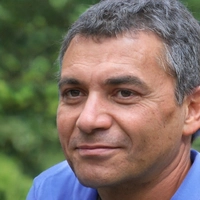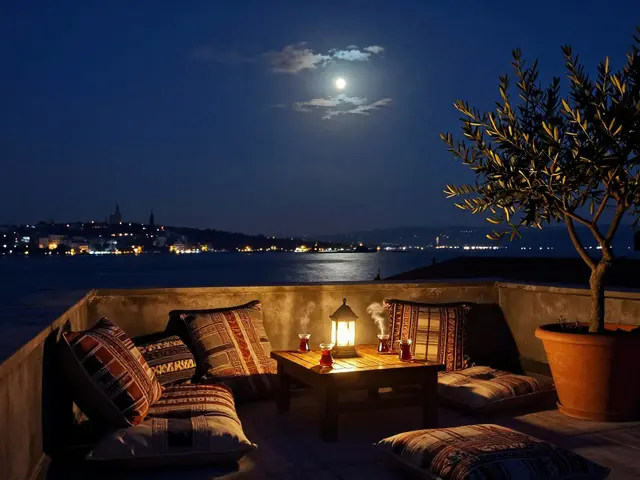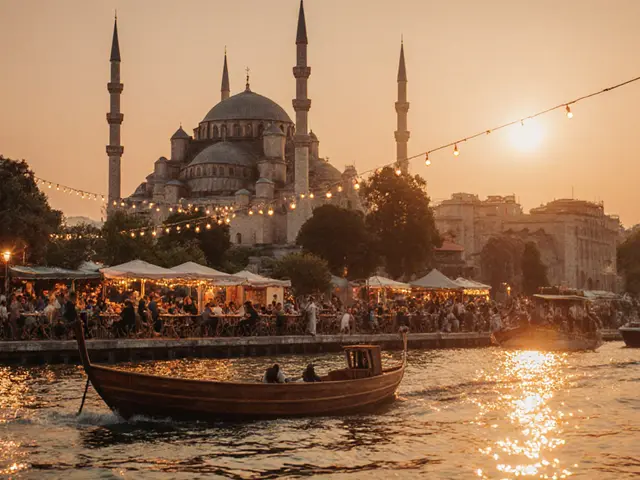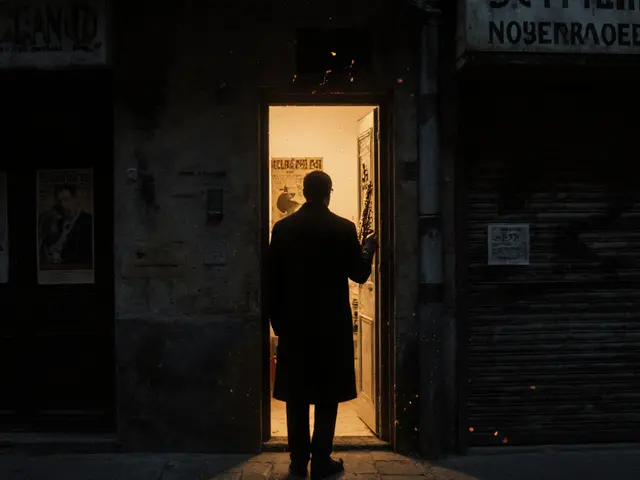Most tourists in Istanbul stick to the same few spots: Istiklal Avenue, the Bosphorus cruise bars, or the rooftop lounges with panoramic views. But if you’ve been there before-or if you just want to feel like a local-you’ll find the real magic happens in the alleyways, behind unmarked doors, and in basements where the music doesn’t come from a playlist but from a live band that’s been playing for 20 years.
The Door Without a Sign
Some of Istanbul’s best nights start with a text message. Not a link. Not a website. A text. One night, I got a message: "Kapı 2, 11 PM. Don’t knock. Wait." I found a narrow door between a dry cleaner and a shuttered bookstore in Beyoğlu. No sign. No windows. I waited. A man in a black coat opened it just enough to look at me, nodded, and stepped back. Inside, it was dim, warm, and packed with people who weren’t there to be seen. A saxophone played old Turkish jazz. No one was on their phone. Everyone was listening. That’s Istanbul nightlife at its purest: not about the vibe, but the moment.
Where the Locals Go After Midnight
After 2 a.m., the crowds thin out on Istiklal. That’s when the real crowd moves. Head to Yeni Ahmet in Kadıköy, a tiny basement bar with mismatched chairs and a fridge full of rakı. The owner, Ahmet, doesn’t speak English. He doesn’t need to. He pours you a glass, points to the wall where photos of musicians from the 80s hang, and says, "This one played here every Friday for 17 years." You don’t come here for cocktails. You come for the stories. And the music. And the way the room smells like smoke, lemon, and old vinyl.
In the quieter neighborhoods like Çukurcuma or Fener, you’ll find Bar 1920, a speakeasy-style spot hidden behind a bookshelf. The bartender knows your name by the third visit. The drinks are simple: gin, tonic, a twist. But the conversation? That’s the main course. You’ll hear engineers from Ankara, poets from Izmir, and a retired ferry captain who still sings sea shanties at 3 a.m.
Music That Doesn’t Play on Spotify
Istanbul’s underground music scene isn’t about EDM or hip-hop. It’s about bağlama players who blend folk with electronica, jazz trios that play in old Ottoman mansions, and women who sing Anatolian lullabies with a distorted guitar behind them. Check out Yayla in Karaköy-a converted warehouse where the floor is concrete, the walls are raw brick, and the sound system is built by a guy who used to repair radios in the 70s. They don’t post events online. You find out through word of mouth. Or you just show up on a Thursday and hope you’re in luck.
One night, I walked in and saw a 70-year-old woman playing the kemençe, a bowed string instrument you rarely hear outside of rural villages. She wasn’t performing. She was just playing. People sat on the floor. No one clapped. They just listened. That’s the rule here: if you’re not listening, you’re not welcome.
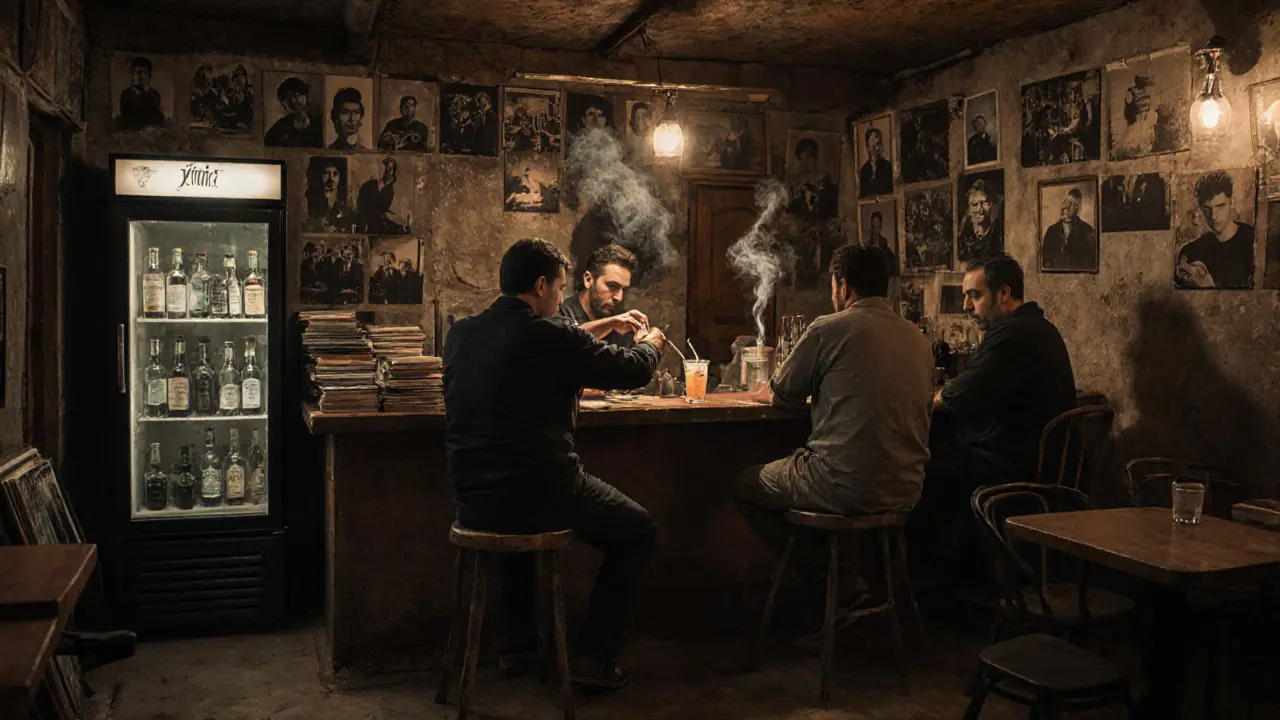
Hidden Rooftops and Forgotten Courtyards
Forget the Instagrammable rooftop bars with $20 cocktails. The real rooftop experiences in Istanbul are tucked into courtyards you didn’t know existed. In the Fatih district, behind a mosque with a crumbling minaret, there’s a courtyard with a single table, two lanterns, and a man who serves homemade ayran and grilled eggplant. No menu. No prices. You pay what you think it’s worth. The view? The Golden Horn at night, lit by a thousand tiny lights from the fishing boats below.
Another one, called Çatı 42, is on the fifth floor of an old apartment building in Beşiktaş. You take the stairs. No elevator. The door is painted black. Inside, it’s a living room turned bar. Books line the walls. A cat sleeps on the couch. The host, a former film professor, plays vinyls from the 60s and asks you what you’re reading. He doesn’t care if you’ve been to Istanbul before. He cares if you’re curious.
When the City Sleeps, the Real Night Begins
Most guidebooks say Istanbul’s nightlife ends at 2 a.m. They’re wrong. It starts then. Around 3 a.m., the kebab shops open. Not the tourist traps with neon signs. The ones with plastic tables and a single bulb hanging over the grill. You’ll find students, taxi drivers, and artists eating lamb off skewers with pickled peppers and flatbread. No one rushes. No one checks their watch. The cook asks you where you’re from. You tell him. He nods. Then he gives you extra onions. That’s the Istanbul way.
By 4 a.m., the coffee houses in Üsküdar are open. Not the fancy ones with oat milk lattes. The old-school places where men sit for hours playing backgammon, arguing about politics, and sipping strong Turkish coffee that’s been brewed in a cezve since the 1950s. The baristas know your name. They remember if you take it sweet or bitter. And if you’re quiet, they’ll tell you about the night the city almost shut down during the 1980 coup-and how music kept people awake.
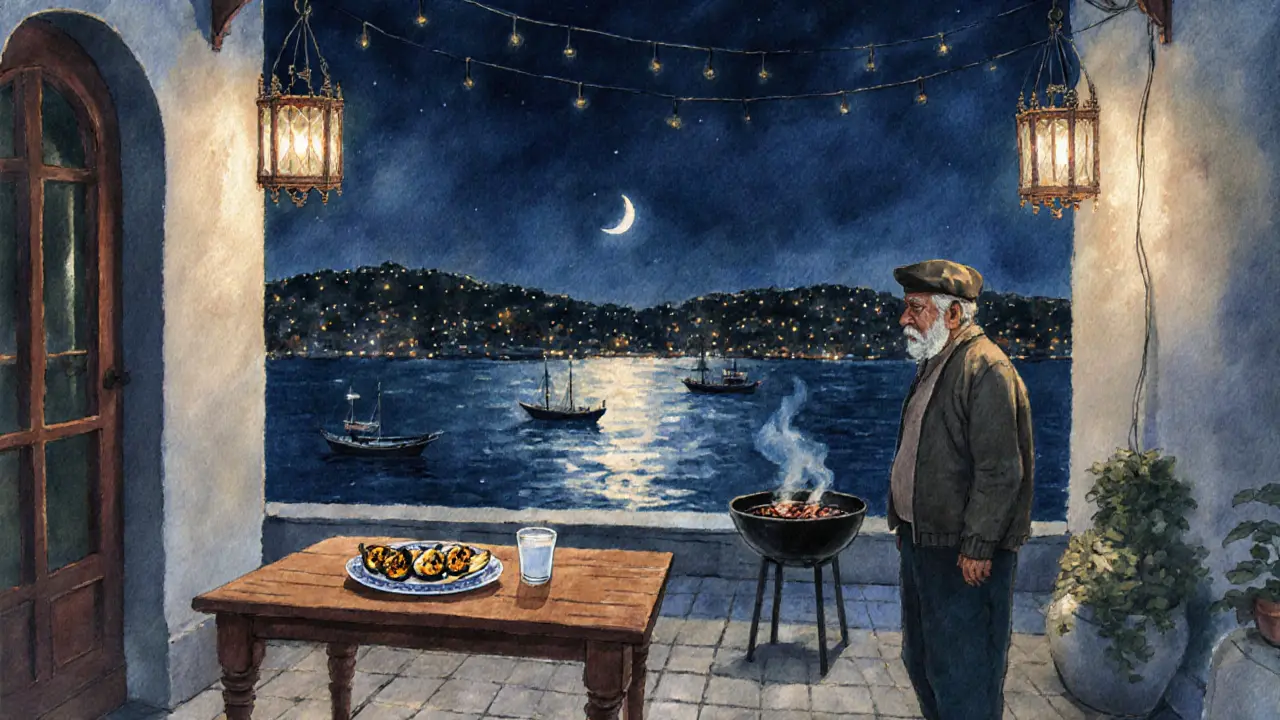
What to Avoid
Don’t go to places that advertise "Istanbul’s #1 Nightclub" on Google Ads. Don’t follow influencers who post selfies with bottles of champagne and a view of the Bosphorus. Those spots are expensive, loud, and designed for people who want to be seen, not to feel something.
Also, avoid places that require reservations online. The best spots don’t have websites. They don’t have Instagram pages. They don’t even have signs. If you can find it on a map, it’s probably not the one you’re looking for.
How to Find the Real Spots
Ask the right people. Not hotel staff. Not tour guides. Ask the guy who runs the corner grocery. The woman who cleans the mosque. The taxi driver who takes you home at 5 a.m. They’ll give you names. Not addresses. Just names. Then you go. You wait. You listen.
Bring cash. Most of these places don’t take cards. And don’t wear designer clothes. You’ll stand out. Wear something simple. Comfortable. Like you belong.
And most importantly-don’t rush. Istanbul’s nightlife doesn’t have a set schedule. It moves when it wants to. Sometimes it’s loud. Sometimes it’s silent. But it’s always alive.
Are Istanbul’s hidden nightlife spots safe for tourists?
Yes, if you follow the local rhythm. Most hidden spots are in residential neighborhoods where people know each other. The vibe is quiet, respectful, and community-driven. Avoid places that feel overly commercial or pushy. Trust your instincts-if something feels off, leave. Locals are usually happy to point you toward safer, authentic spots if you ask politely.
Do I need to speak Turkish to enjoy Istanbul’s hidden nightlife?
No, but a few basic phrases go a long way. Saying "Merhaba" (hello), "Teşekkür ederim" (thank you), and "Lütfen" (please) opens doors. Many owners and bartenders speak some English, but they appreciate the effort. The real connection happens through eye contact, smiles, and listening-not words.
What’s the best time of year to experience Istanbul’s hidden nightlife?
Late spring (May-June) and early autumn (September-October) are ideal. The weather is mild, the streets are alive, and the crowds are smaller than in summer. Winter nights are colder but quieter-perfect for cozy basements and coffee houses. Avoid August; many locals are away, and the city feels empty.
Can I find live music in Istanbul’s underground scene?
Absolutely. From jazz in hidden courtyards to experimental bağlama fusion in converted warehouses, live music is everywhere-if you know where to look. Check local flyers in bookshops, ask at independent record stores like Sound of Istanbul in Beyoğlu, or follow local music blogs like İstanbul Jazz or Yerel Müzik. Events rarely get advertised online, but they always get whispered about.
How much should I expect to spend at these hidden spots?
You can have a full night out for under $20. A drink at a hidden bar costs $3-$5. A plate of meze and grilled meat at a late-night kebab joint runs $6-$8. Coffee is $1.50. Most places don’t have cover charges. The only thing you’ll pay extra for is if you order imported alcohol. Stick to local rakı, wine, or beer-you’ll taste the city better.
